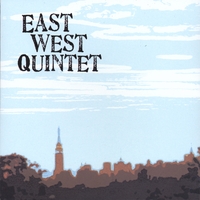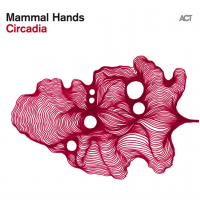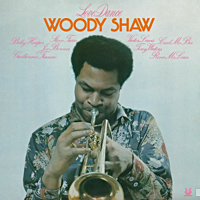Home » Jazz Articles » Album Review » Pierre Favre: Fleuve
Pierre Favre: Fleuve
The music dances (often literally), and is light, airy and transparent. Favre seems to go out of his way to choose instrumentation that works against such a result by being bottom-heavy: acoustic and electric bass, tuba, serpent and bass clarinet are included. However, to lighten things, soprano saxophone is used instead of bass clarinet at times, while harp and guitar are added to the mix; plus, of course, Favre's precise and light drums and percussion.
Favre does not fall at the Paul Motian end of drums/percussion as sound instrument, since he does like a pulse, if not a swinging beat. The music contains its own pulse much of the time and does not need strong emphasis from Favre; the only real drum solo occurs in the last third of the last track, "Decors." However, he does seem to have a predilection for the percussion equivalent of a pedal point.
The opening track, "Mort d'Eurydice," has a free section involving harp and percussion, followed by a central section with a heart-like rhythm set up by the bass. It is realized into a dance by the unison declamation of its beautiful theme by soprano sax, bass, guitar and harp. "Nile" is mostly supported by a steady bass drum against which the other instruments play. "Mort d'Eurydice" and "Decors," which both allude to Renaissance music, demonstrate the importance of rhythm as dance in this music, as does the delicate waltz of "Panama."
There are four keys to the music's overall light texture: the arrangements, controlling which instruments are playing at any one time; the use of various instruments playing in unison; the fact that low instruments are generally played in their higher registers; and finally, the touch used by the bassists.
It is fascinating to listen to the music unfold, observing the tension between composition, arrangement and improvisation, while the texture remains light as the instrumentation changes.
Fleuve is timeless, despite its allusions, with each track adding its own charm and excitement. "Albatross" has a gorgeous melody and an intensely concentrated solo guitar, while "Reflet Sud" contains driving rhythms and creates excitement using few materials. "Nile" projects arpeggio wavelets and the majestic flow of the great river, while "Decors" creates tension by continually shifting between Renaissance dance and African polyrhythms.
Favre has created music of many layers that exists totally outside of any specific genre. By turns profound, exciting and overtly beautiful, Fleuve is art of the highest degree.
Track Listing
Mort d'Eurydice; Panama; Albatros; Reflet Sud; Fire Red - Gas Blue - Ghost Green; Nile; Decors.
Personnel
Pierre Favre
drumsPhilipp Schaufelberger: guitar; Frank Kroll: soprano saxophone, bass clarinet; Hélène Breschand: harp; Michel Godard: tuba, serpent; Wolfgang Zwiauer: bass guitar; Bänz Oester: bass; Pierre Favre: percussion, drums.
Album information
Title: Fleuve | Year Released: 2007 | Record Label: ECM Records
Tags
PREVIOUS / NEXT
Support All About Jazz
 All About Jazz has been a pillar of jazz since 1995, championing it as an art form and, more importantly, supporting the musicians who make it. Our enduring commitment has made "AAJ" one of the most culturally important websites of its kind, read by hundreds of thousands of fans, musicians and industry figures every month.
All About Jazz has been a pillar of jazz since 1995, championing it as an art form and, more importantly, supporting the musicians who make it. Our enduring commitment has made "AAJ" one of the most culturally important websites of its kind, read by hundreds of thousands of fans, musicians and industry figures every month.




















